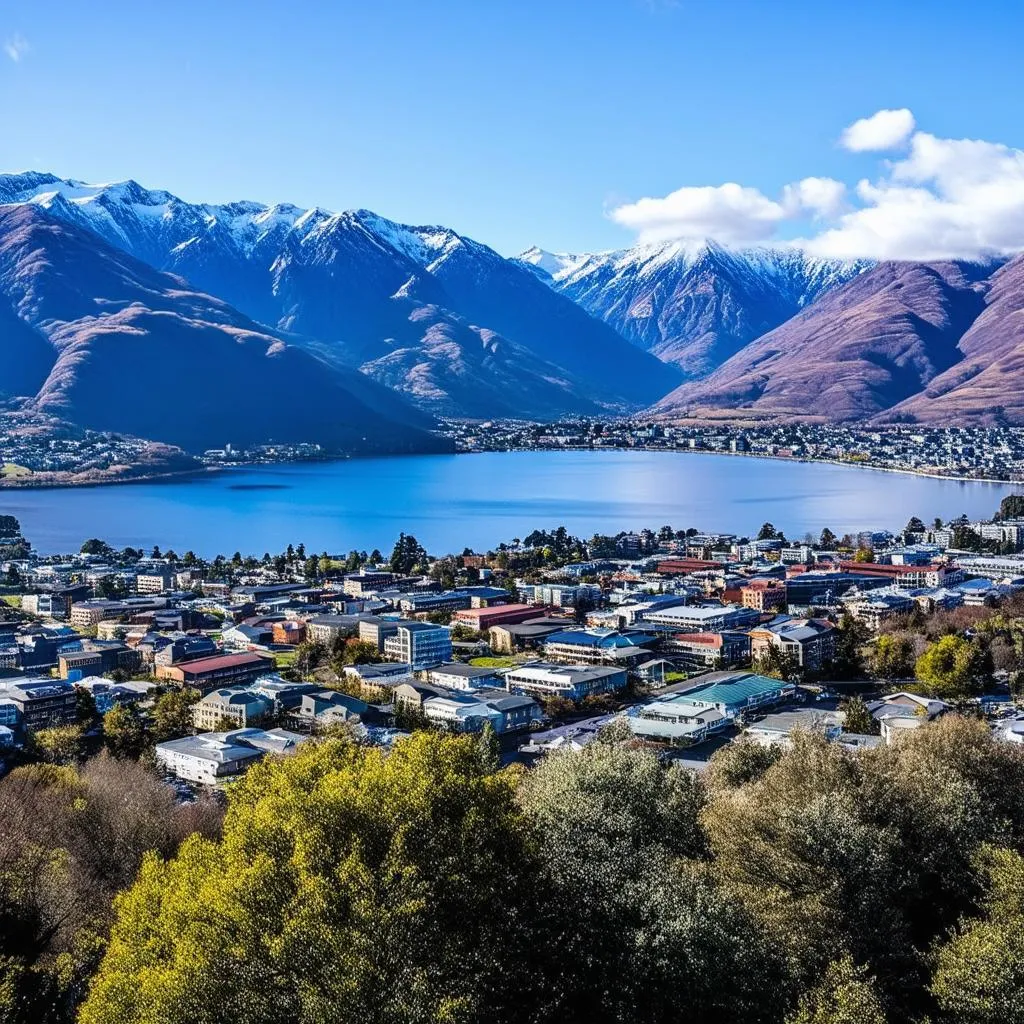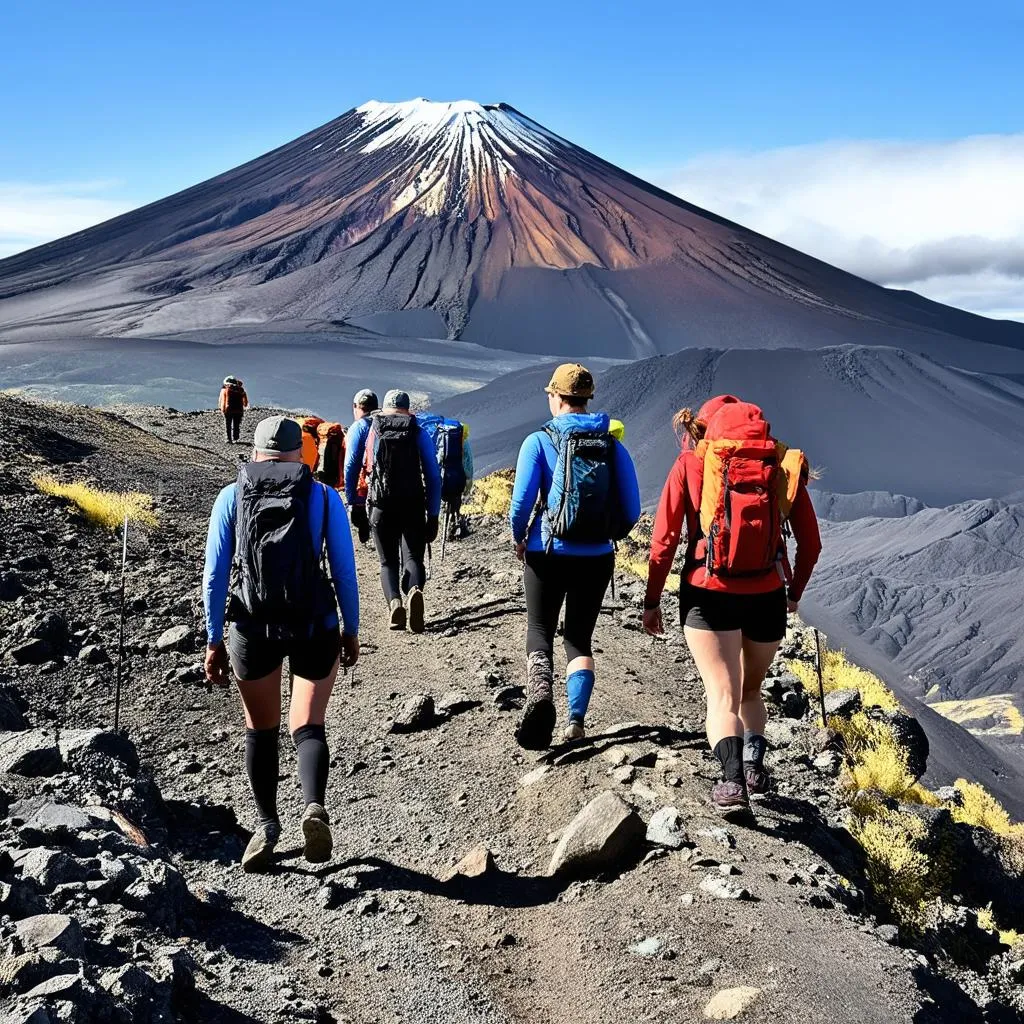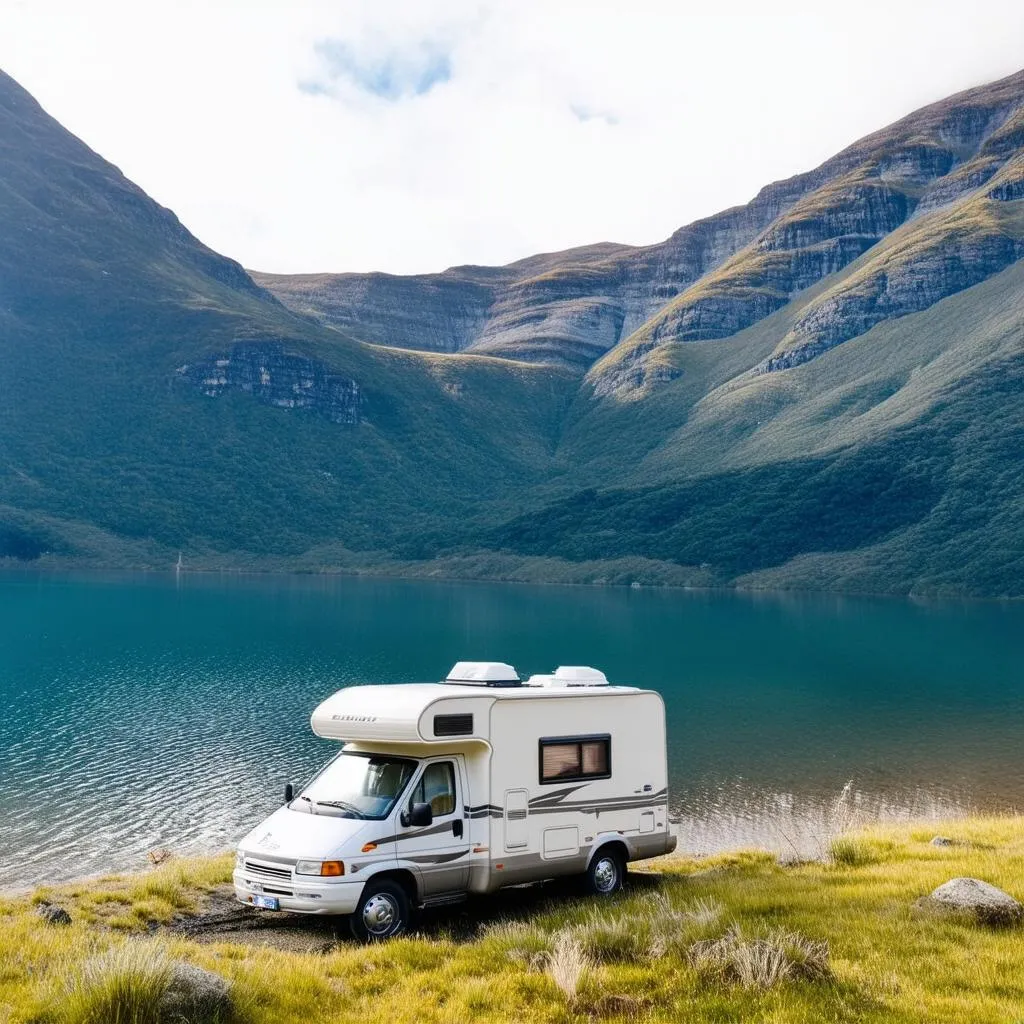“It’s not the destination, it’s the journey.” This saying rings especially true when planning a trip to New Zealand. But let’s be real, the cost of the journey plays a big role in making that dream trip a reality. So, Is It Expensive To Travel To New Zealand? Well, the answer isn’t a simple yes or no.
I remember talking to a fellow traveler, Sarah, in Queenstown. She was backpacking through New Zealand on a tight budget and having the time of her life. She told me, “It’s all about priorities. I’d rather cut back on fancy dinners and stay in hostels to experience the incredible hikes and landscapes.” And she was right. New Zealand caters to every type of traveler and budget, from luxury lodge stays to budget-friendly campervan adventures.
Understanding the Cost of Traveling to New Zealand
Like any destination, several factors influence the overall cost:
1. Flights: Finding Your Way to Middle-earth
Let’s face it, getting to New Zealand can be a significant expense, especially if you’re traveling from afar. Return flights from North America or Europe can easily set you back over $1,000, while flights from within Asia and Australia tend to be more affordable.
Tips to save on flights:
- Travel during the shoulder seasons: Consider visiting during spring (September-November) or autumn (March-May) for cheaper flights and fewer crowds.
- Be flexible with your travel dates: Weekday flights are often cheaper than weekend ones.
- Utilize flight comparison websites: Sites like Skyscanner and Google Flights are your best friends for finding deals.
2. Accommodation: From Backpacker Havens to Luxurious Lodges
New Zealand offers a wide range of accommodation options for every budget.
- Budget-conscious travelers: Hostels (dorm rooms start from $20 per night) and campsites (from $15 per night) are excellent choices.
- Mid-range options: Consider motels, holiday parks with cabins, and Airbnb rentals.
- Luxury seekers: New Zealand boasts stunning lodges and boutique hotels, often with breathtaking views (expect to pay upwards of $300 per night).
3. Food and Drink: Indulging in Kiwi Cuisine
Food prices in New Zealand are comparable to those in Australia and slightly higher than in the United States. Expect to spend around:
- $20-30 per day on groceries if you’re cooking most of your meals.
- $25-40 per person for dining out at a mid-range restaurant.
- $4-7 for a flat white (their famous coffee).
Saving tip: Look out for lunch specials and happy hour deals at pubs and restaurants.
4. Activities: The Heart of the New Zealand Experience
From adrenaline-pumping bungy jumps to scenic hikes and mesmerizing glowworm caves, New Zealand is an adventure playground. Activity costs vary greatly:
- Free activities: Hiking, swimming at beaches, exploring national parks.
- Paid activities: Expect to pay around $100-200 for activities like bungy jumping, white water rafting, or a scenic flight.
Pro tip: Many tour operators offer discounts for booking multiple activities or traveling during the off-season.
 Queenstown scenic view
Queenstown scenic view
Budgeting for Your New Zealand Trip: How Much to Save?
As a general guideline, here’s a rough daily budget estimate:
- Backpacker: $75-100 per day
- Mid-range traveler: $150-250 per day
- Luxury traveler: $300+ per day
Remember: This is just a guide. Your actual costs will depend on your travel style, activities, and length of stay.
Planning Your New Zealand Adventure: Tips from TravelCar.edu.vn
- Consider a campervan trip: New Zealand is famous for its campervan culture, offering a cost-effective and flexible way to explore at your own pace. Check out travelcar.edu.vn for more information on planning a campervan adventure.
- Look for free activities: Take advantage of the country’s stunning natural beauty by hiking, swimming, and picnicking in its many national parks.
- Travel during the shoulder seasons: Enjoy pleasant weather, fewer crowds, and often lower prices for flights and accommodation.
- Book accommodation and activities in advance: Especially during peak season, booking ahead can save you money and guarantee availability.
Don’t Miss:
- Exploring the geothermal wonders of Rotorua: Experience the unique culture and natural beauty of this geothermal wonderland. Learn more about planning your trip to Rotorua on travelcar.edu.vn.
- Hiking the Tongariro Alpine Crossing: Challenge yourself with this world-renowned day hike through volcanic landscapes.
- Sailing in the Bay of Islands: Discover secluded beaches, crystal-clear waters, and abundant marine life.
 Tongariro Alpine Crossing
Tongariro Alpine Crossing
FAQs: Answering Your Burning Questions
Is it cheaper to travel to the North or South Island?
The South Island is generally slightly more expensive due to its popularity for adventure activities and scenic flights.
Can I drink the tap water in New Zealand?
Yes, the tap water in New Zealand is generally safe to drink.
What is the best time to see the Southern Lights in New Zealand?
The best time to catch the Southern Lights (Aurora Australis) is during the winter months (June-August) in the South Island.
Do I need a visa to travel to New Zealand?
Many nationalities can visit New Zealand for up to 90 days without a visa. However, it’s essential to check the visa requirements for your specific nationality before you travel.
Concluding Your Kiwi Adventure
Traveling to New Zealand doesn’t have to break the bank. By planning, prioritizing, and embracing the adventurous spirit of this beautiful country, you can create unforgettable memories without exceeding your budget.
Ready to plan your dream trip? Head to travelcar.edu.vn for more travel tips, destination guides, and inspiration.
What are your top tips for traveling to New Zealand on a budget? Share your thoughts in the comments below!
 Campervan trip in New Zealand
Campervan trip in New Zealand